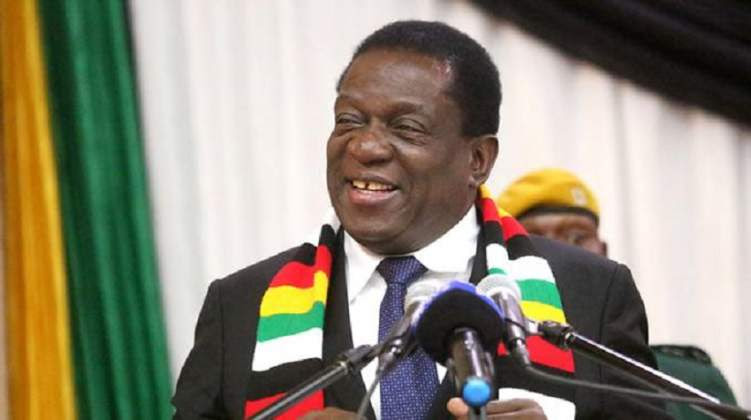By Beaven Dhliwayo
The National Development Strategy 1 (2021- 2025) (NSD1) replaced the Transitional Stabilisation Programme (TSP) which was implemented in October 2018 and ends December 2020. Both strategies are aimed towards achieving the Government’s overarching desire to transform Zimbabwe’s economy from a low income to an upper-middle-income economy by 2030.
A low-income economy has a per capita Gross National Income (GNI) of less than US$1 036 whilst an upper-middle-income economy GNI ranges between US$4 046 and US$12 535.
The success of the strategy highly depends on how the Government is willing to push the reform agenda, with the Second Republic emphasizing an “open for business” policy while moving away from the authoritarian rule and gross economic mismanagement under Mugabe’s 37 years in power.
Launching NDS1 recently, President Mnangagwa said the economic blueprint is anchored on economic growth and institutional reforms aimed at helping Zimbabwe attain an upper middle-income economy by 2030.
NDS1 outlined five areas namely energy sector, water and sanitation, ICT as well as the transport sector as key for Zimbabwe to achieve its Vision 2030.
“Riding on the momentum realized during the phase of the TSP, the construction, rehabilitation and modernization of key infrastructure will continue with greater speed under the NDS1. Focus will be on strategic infrastructure in energy, water and sanitation, ICT and transport sectors which enable Zimbabwe to be more efficient and competitive,” Mnangagwa said.
To achieve this, Government and ZANU-PF need to make efforts to promote deeper-level reform and pursue higher-level opening up to provide a strong impetus for establishing a new development pattern that will boost investment both local and abroad.
Many are questioning if there are significant political and economic reforms efforts after Mugabe’s rule.
Although, on his part President Mnangagwa deployed a robust reform agenda, his administration’s spasmodic actions deny any effort toward genuine political or economic reform.
Politics and the economy in Zimbabwe are interconnected hence the need for Government and ZANU-PF to play a crucial role in helping the country recover from years of mismanagement, corruption, human rights abuses and state violence, by leading the country in a systematic manner to implement genuine political, economic, electoral and security reforms.
A country plagued by massive corruption, to move ahead, Zimbabwe can learn from China on how to focus its strength on major difficulties and tough struggles, stimulate the vitality of its systems, take advantage of all experience gained at grassroots, and encourage officials to work hard and be achievers, thereby furthering reform in all aspects.
In his book, “The Governance of China III”, President Xi Jinping pointed that in order to establish a new development pattern featuring dual circulation, which takes the domestic market as the mainstay while letting domestic and foreign markets boost each other, efforts should be made to give full play to reform and remain firm in strategic determination.
“Implementation is key to successful reform, and it also a difficult task. As we enjoy favorable conditions for pursuing the implementation of reform, and the theoretical, practical and institutional foundations of reform grow stronger, along with public support, we should concentrate more energy and make greater efforts to ensure effective implementation, improve leadership and coordination, and focus our reform on practical problems.”
Xi stressed that the country’s reform measures should consider the current situation as well as development in the medium and long term, requiring reforms to be accelerated to raise the efficiency of resource allocation and improve development quality and its effectiveness.
Corruption is the major problem Zimbabwe is facing and it has deprived the country of the much-needed resources to improve development and attract foreign investors.
Repression continues in the Second Republic with numerous cases of human rights abuses against dissenting voices perpetrated by suspected state agents.
On the other hand, the economy continues to sink.
With the old guard and military still firmly in power, enjoying the benefits, genuine reform is likely to take long.
Indeed it is a hard task but according to Xi: “The deeper the reform, the more resolute we should be in shouldering responsibilities, taking actions, making rapid and steady progress and forging ahead with courage. We must never pause or slacken our efforts.”
Hence, Government and the ruling ZANU PF need to concentrate more energy and make greater efforts to ensure effective implementation of reforms, improve leadership and coordination, and focus reform on practical problems.
Politics and economics remain intimate in Zimbabwe, hence the need to reform the two in a more organized and systematic manner.
Genuine reforms are the ones needed to restore investor confidence and this will also open up lending from international financial institutions.
In addition, deeper reform will push Zimbabwe towards a democratic path, thus lessening high levels of political polarization currently plaguing the country. The Second Republic’s task now is to boost integration, collaboration and efficiency, consolidate and entrench the achievements made in the recent years in moving institutional barriers and fostering innovation in policy, and develop a more mature and well-defined system in every field.






